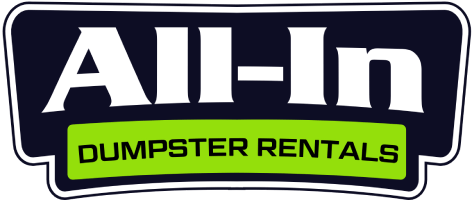The Weight of the Matter: Understanding Dumpster Weight Limits in Asheville
When you’re knee-deep in a renovation project or tackling a major cleanup around your Asheville property, the last thing you want is an unexpected charge on your bill. Yet that’s exactly what happens to many folks who rent dumpsters without understanding one crucial factor: weight limits.
Here in the beautiful mountains of Western North Carolina, where properties range from historic downtown Asheville bungalows to sprawling homes tucked into the slopes of surrounding communities like Black Mountain and Weaverville, proper waste management isn’t just about convenience—it’s about responsibility to our stunning natural environment.
As someone who’s helped countless Asheville residents manage their waste removal needs, I’ve seen the look of surprise when customers receive an invoice with overage charges. That’s why understanding weight limits before you rent a dumpster isn’t just helpful—it’s essential for your budget and project planning.
Why Weight Matters in Dumpster Rentals
Think about the last time you drove through our mountain roads. Those steep inclines and winding passes aren’t just challenging for your car—they present real challenges for waste haulers too. Every dumpster has a maximum weight capacity for good reason.
When we deliver a dumpster to your Asheville property, we’re accounting for several factors: the truck’s capacity, road safety regulations, and landfill requirements. Exceeding weight limits doesn’t just risk damage to our equipment—it could violate transportation regulations and impact disposal costs at local facilities.
The most common reason customers face overage charges is simple: they underestimate the weight of their debris. That old bathroom tile you’re tearing out? Much heavier than you might think. Those landscaping rocks from your backyard redesign? They add up quickly. Even seemingly lightweight materials like household junk can surprise you when consolidated.
Understanding Typical Weight Limits by Dumpster Size
In Asheville and throughout Western North Carolina, dumpster rental companies typically offer several size options, each with corresponding weight allowances. Here’s what you typically can expect:
Smaller 10-yard dumpsters usually have weight limits between 1-2 tons (2,000-4,000 pounds). These are perfect for smaller projects like single-room renovations or garage cleanouts.
Mid-sized 15 to 20-yard dumpsters commonly allow 2-3 tons (4,000-6,000 pounds). These work well for most home renovation projects or medium-sized cleanups.
Larger 30 to 40-yard dumpsters typically permit 3-6 tons (6,000-12,000 pounds), making them suitable for major construction or whole-home cleanouts.
Remember that these are general guidelines. Local Asheville companies might have slightly different weight allowances based on their specific equipment and the unique challenges of serving our mountainous region.
The Heavy Hitters: Materials That Cause Weight Issues
After years of serving the Asheville area, I’ve noticed patterns in what causes weight overage charges. Being aware of these “heavy hitters” can help you plan better:
Concrete, brick, and stone are among the densest materials you’ll dispose of. Just a small pile of concrete can weigh hundreds of pounds. When removing hardscaping or demolishing foundations in older Asheville homes, you’ll want to be especially careful about weight calculations.
Soil and dirt might seem innocuous, but damp soil is remarkably heavy. A cubic yard of soil can weigh over 2,000 pounds—that’s a ton! This is particularly relevant for Asheville residents doing landscaping work, as our mountain soil can be quite dense.
Roofing materials, especially from older Asheville homes with multiple layers of shingles, add up quickly. Many homeowners don’t realize that a complete roof tear-off from even a modest-sized home can easily exceed weight limits on smaller dumpsters.
Wet materials of any kind increase weight dramatically. That’s worth considering during our rainy seasons here in Western North Carolina, when open-top dumpsters can collect precipitation if not properly covered.
How to Estimate Your Project’s Weight
Accurately estimating weight before choosing a dumpster size can save you significant money. Here are some practical tips:
Break down your project into material types. Instead of thinking “I’m renovating my kitchen,” itemize it: “I’m removing 15 cabinets, 40 square feet of tile, and 30 square feet of drywall.” This specificity helps with weight calculations.
Use online calculators that can help estimate weights based on material type and volume. Many Asheville dumpster rental companies (including ours) offer these tools on their websites.
Consider the age of your property. Older Asheville homes often have denser materials—like plaster instead of drywall or solid wood instead of engineered materials—which weigh significantly more.
When in doubt, round up in your estimates. It’s better to slightly overestimate and choose a larger dumpster than to face overage charges.
Smart Loading Strategies to Manage Weight
How you load your dumpster can significantly impact weight distribution and overall capacity. Follow these Asheville-specific loading tips:
Place heavier items at the bottom and spread them evenly across the dumpster floor. This prevents weight concentration in one area and maximizes space utilization.
Break down bulky items whenever possible. That old furniture from your West Asheville apartment renovation will take up less space when disassembled, allowing you to fit more into your rental.
Consider weather forecasts when planning your project. Our mountain weather can change quickly, and rain can add substantial weight to your dumpster contents. Use tarps during our frequent afternoon thunderstorms to keep materials dry.
Load strategically by alternating heavy and light materials. If you’re disposing of both concrete and yard waste from your Asheville property, don’t put all the concrete in at once—alternate layers to distribute weight.
Understanding Overage Charges in the Asheville Area
Despite your best planning, sometimes overages happen. Understanding how these charges work can help you make informed decisions:
Most Asheville dumpster rental companies (ourselves included) charge overages by the ton, typically between $50-$100 per ton over the limit. These rates reflect local landfill fees and additional transportation costs in our mountainous region.
Some companies use a tiered approach, where the rate increases with the amount of overage. Going slightly over might cost less per pound than exceeding by a significant amount.
Be aware that some materials face additional disposal fees beyond weight charges. For example, electronics, appliances, and certain hazardous materials common in older Asheville homes may incur separate fees regardless of weight.
Ask about how weight is determined. Most companies weigh the dumpster at their facility or at the landfill, subtracting the empty container weight to calculate your disposal amount.
Splitting Heavy Loads: When One Dumpster Isn’t Enough
Sometimes, especially for larger Asheville renovation projects or property cleanouts, it makes financial sense to rent multiple dumpsters rather than risking overage charges:
Consider consecutive rentals for projects that generate different types of waste. For instance, during a full home renovation in North Asheville, you might rent one dumpster for the demolition phase (heavy materials) and another for the finishing phase (lighter packaging and scraps).
For extended projects, ask about swap-outs. Once your first dumpster reaches its weight limit, have it hauled away and replaced with an empty one. This approach often costs less than paying overage fees.
Some local contractors in the Asheville area will coordinate shared dumpster rentals for neighboring projects, splitting both the rental cost and the weight allowance. This community approach works particularly well in neighborhoods like Montford or West Asheville where multiple home renovations often happen simultaneously.
Alternatives for Heavy Materials
For particularly heavy items, consider alternatives to standard dumpster rentals:
Specialized concrete-only dumpsters are available in the Asheville area and typically offer higher weight allowances specifically for dense construction materials.
Local recycling facilities may accept certain heavy materials like clean concrete or brick at lower costs than landfill disposal. This is especially relevant in environmentally-conscious Asheville, where recycling is strongly encouraged.
For soil disposal, connect with local landscapers or gardening groups. Clean fill dirt is often wanted for other projects around Western North Carolina, turning your waste into someone else’s resource.
Consider renting smaller specialty equipment for specific materials. For instance, concrete requires specialized handling, and dedicated concrete containers might be more cost-effective than a general-purpose dumpster.
Questions to Ask Your Asheville Dumpster Rental Provider
Being informed starts with asking the right questions when you call for a quote:
“What exactly is included in the quoted weight limit?” Some companies include disposal fees in their base price up to a certain weight, while others charge separately.
“How do you measure weight?” Understanding the weighing process helps avoid surprises.
“Do you offer any flexibility on weight limits?” Some local Asheville companies might have slight leeway or different pricing tiers.
“Can I be present when the dumpster is weighed?” This transparency can give you peace of mind about charges.
“What happens if I accidentally exceed the weight limit?” Understanding the overage fee structure beforehand prevents billing surprises.
Making Weight Work for Your Asheville Project
Weight limits don’t have to be a burden if you plan properly. The key is understanding them before your dumpster arrives at your Asheville property.
Track your loading progress throughout the rental period. If you notice you’re filling up faster than expected, contact your rental provider to discuss options before you exceed limits.
Consider sorting materials before disposal. In our eco-conscious Asheville community, separating recyclables or donating usable items not only reduces weight but supports sustainability.
Remember that season matters in our region. Summer projects often generate more yard waste, while winter tends to involve more indoor renovations with construction materials. Plan your dumpster choice accordingly.
Take advantage of local knowledge. An established Asheville dumpster rental company will have specific insights about disposal challenges in your neighborhood, whether you’re in downtown, East Asheville, or one of the surrounding communities.
By understanding weight limits, planning appropriately, and communicating clearly with your rental provider, you can avoid those unwelcome overage charges and keep your Asheville cleanup or renovation project on budget. Your wallet—and our beautiful Western North Carolina environment—will thank you for taking the time to get it right.

